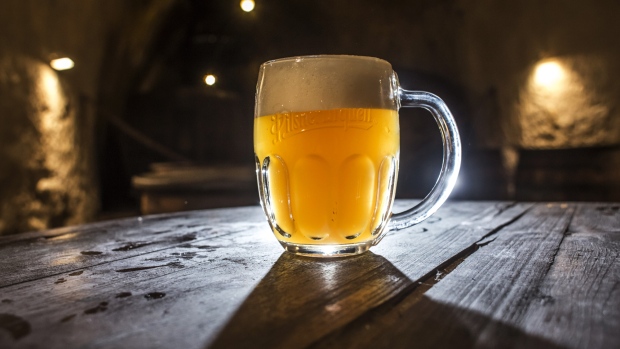Jun 6, 2019
Craft brewers welcome move to sell beer at corner stores in Ontario
The Canadian Press

Ontario craft breweries are welcoming the provincial government's move to expand beer sales to corner stores, saying the current system limits their products' exposure to customers.
"I just think it's fantastic news," said Scott Simmons, president of the Ontario Craft Brewers, a trade association composed of nearly 100 brewer members.
Premier Doug Ford's Progressive Conservative government tabled legislation last week that would terminate a contract with The Beer Store that was signed by the previous Liberal government. The deal allowed for beer and wine sales to be expanded to hundreds of grocery stores, but the Tories want to also allow beer in corner stores.
The legislation passed Thursday, but doesn't become law until it is proclaimed, which the government could do at any time. In the meantime, it said negotiations with The Beer Store continue.
The legislation drew criticism from the U.S. Chamber of Commerce and the Ontario Chamber of Commerce.
The way The Beer Store operates makes it difficult for smaller breweries to sell their products there and attract customers, said Todd Lewin, president of Muskoka Brewery.
The foreign brewers that own Molson Coors, Labatt and Sleeman mostly own the chain, which operates more than 450 retail stores.
It's expensive to buy a listing at the store, said Lewin. He estimates it would cost more than $100,000 to sell one type of beer at all the chain's locations. First, there's a several-thousand-dollar listing fee and a $230 fee per store, he said. If brewers don't sell a certain volume every six months or so, Lewin said, they lose that listing.
It's also hard for craft brewers to have their products noticed in a conventional Beer Store, he said. Many locations prevent consumers from perusing store shelves that may hold new brands to sample.
As a result, craft brewer sales volumes tend to be lower at The Beer Store than at other avenues, like grocery stores, he said. Lewin, who sits on the Ontario chamber's board of directors, supports the move to sell beer at grocery stores.
Craft beer sales in the province have been suppressed with the current system, said Simmons.
They account for two per cent of the sales volume at The Beer Store, according to his figures, while they make up 13 per cent of sales at LCBO stores and more than 20 per cent in many grocery banners.
"It just kind of shows you what happens when we can put our fantastic products in front of consumers in a shopping environment where they can stop, browse, look at the product, pick it up, ask for some advice," he said.
The change would benefit not only craft brewers, but also consumers and taxpayers, said Simmons. Consumers will have more choice and convenience, and the move will give the economy a boost, he said.
Economic Development Minister Todd Smith said he supports the craft brewers.
"In my particular riding we have small, craft breweries that are growing and want to continue to grow," said Smith, who represents Bay of Quinte in eastern Ontario. "Why would we support a monopoly on beer? We want more access for those small companies so they can create more jobs in Ontario and really that's what it's all about."
While most of the association's members express support for corner store beer sales, Simmons said some have asked questions about distribution.
Lewin, for one, wondered how a new distribution model would work to cost effectively bring the brewery's beers to thousands of new locations.
The Ontario chamber has been working out how distribution will work in this new environment, Simmons said, and has been speaking with third-party organizations.
"I have no concerns whatsoever that we can't come up with a model that will make it beneficial for our membership to have an expanded retail footprint in the province," he said.
"I wouldn't even call it a concern. I'd call it a question mark."




